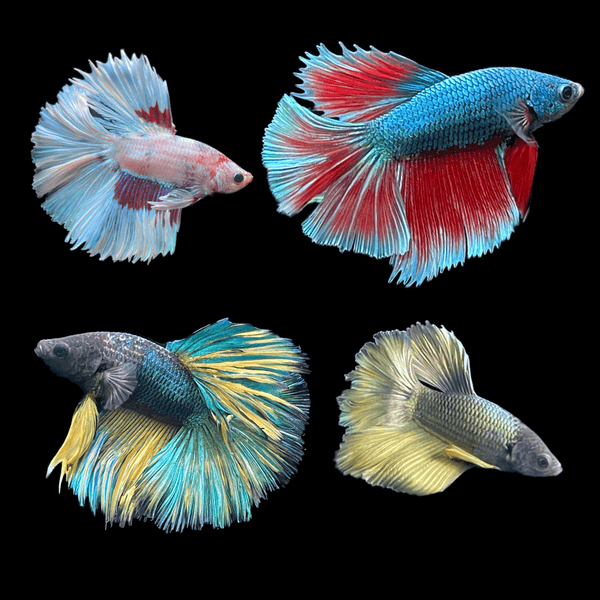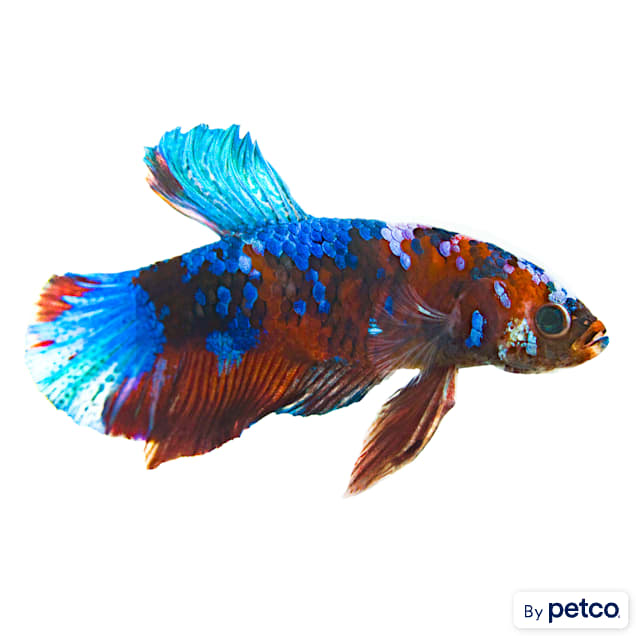Betta Fish Tank Setup: A Step-by-Step Guide for Beginners
Betta Fish Tank Setup: A Step-by-Step Guide for Beginners
Blog Article
The Ultimate Guide to Betta Fish Care: Crucial Tips for Keeping a Healthy And Balanced and Flourishing Aquarium Atmosphere
Reliable Betta fish treatment demands an extensive understanding of their one-of-a-kind environmental and physical needs. Establishing a suitable fish tank begins with selecting the right storage tank size and guaranteeing optimum water conditions, which are essential for the health and health of your Betta.
Picking the Right Storage Tank
Picking the suitable tank for your Betta fish is vital to guaranteeing its wellness and health. Bettas grow in atmospheres that imitate their all-natural habitats, which normally contain calm, cozy waters. A storage tank size of a minimum of five gallons is suggested to offer appropriate swimming room, as smaller containers can result in tension and health issues for these vibrant fish.
When choosing a storage tank, consider the container's form and purification system. A rectangular storage tank is preferable to a bowl, as it offers more surface for oxygen exchange. In addition, a reputable filtration system is necessary to keep water quality and minimize the frequency of water modifications (betta fish). Nonetheless, it is necessary to pick a filter with a gentle circulation, as Bettas are not solid swimmers and may resist solid currents.
Temperature level policy is another essential variable; Bettas like water temperature levels in between 76 ° F and 82 ° F. Purchasing a good heating system will make certain that the water remains within this array, promoting a healthy and active lifestyle for your Betta. Finally, offering appropriate tank designs and hiding areas will aid minimize tension and encourage all-natural behaviors, additionally improving your Betta's well-being.
Maintaining Water Quality
Preserving ideal water high quality is important for the wellness and long life of Betta fish. This calls for regular monitoring of numerous criteria, consisting of temperature, pH, ammonia, nitrite, and nitrate levels. Bettas thrive in temperatures between 76 ° F and 82 ° F, so keeping a steady temperature level is important. Sudden variations can bring about tension and ailment.
The pH degree must preferably fall in between 6.5 and 7.5. Normal screening using a reliable water screening kit can help make certain these specifications remain within the proper arrays. Ammonia and nitrite degrees must always be at 0 ppm, as even reduced concentrations can be poisonous to Betta fish. Nitrate levels should be maintained under 20 ppm to stop lasting wellness concerns.
Routine water adjustments are important to preserving water high quality. It is advised to change 25-50% of the container water weekly, depending on the tank dimension and equipping levels. Making use of a high-quality water conditioner can help get rid of harmful chemicals from faucet water, making certain a safe atmosphere. Additionally, incorporating a durable filtering system can help in keeping water clarity and high quality, supplying a much healthier environment for your Betta fish.
Perfect Feeding Practices
Supplying a well balanced diet plan is important for the wellness and vivid coloration of Betta fish, as their dietary demands play a significant duty in their total well-being. Betta fish are meat-eating by nature, requiring a diet regimen high in protein. A mix of top quality pellets, icy or real-time foods such as bloodworms, salt water shrimp, and daphnia can provide the important nutrients they need.
Feed your Betta fish a couple of times a day, providing just what they can take in within a couple of minutes to avoid overfeeding and keep water top quality. Overfeeding can cause weight problems and health concerns, including swim bladder condition. It is vital to monitor their dietary intake and adjust portion sizes appropriately.
Along with protein, a well balanced diet regimen ought to consist of vitamins and minerals to advertise optimal health and wellness. Consider supplementing their diet plan with premium flakes or pellets specifically developed for Betta fish, as these often consist of necessary ingredients.

Producing an Appropriate Habitat

Water top quality is critical; keep a temperature level in between 76 ° F and 82 ° F, and ensure the pH level varies from 6 - betta fish.5 to 7.5. Routine water modifications of 25-50% each week will assist keep toxins at bay and make sure a secure environment
Integrating plants and concealing places is essential, as Betta fish are normally territorial and take pleasure in having locations to check out and pull away. Live or silk plants, along with caves and ornaments, can create a stimulating environment.
:strip_icc()/how-long-do-bettas-live-1380782-hero-813aa5d34bab48cdb333edfe02471dad.jpg)
Routine Health Checkups
Performing normal health and wellness examinations is vital for making sure the well-being of Betta fish, as very early detection of potential concerns can stop major health issue. These check-ups must encompass a detailed evaluation of the fish's physical problem, actions, and environmental variables.
Begin by observing the Betta fish for any type of indicators of distress, such as lethargy, loss of hunger, or uncommon swimming patterns. Additionally, evaluate the fins and body for indicators of staining, lesions, or fin rot, which can show infections or bloodsuckers. Regularly checking the water high quality in the fish tank is equally essential; parameters such as pH, ammonia, nitrite, and nitrate degrees need to be maintained within optimum ranges to stop stress and disease.
Furthermore, think about maintaining over here a log of health observations and water quality tests. Prompt treatment can make a substantial distinction in the healing of your Betta fish, making certain a lengthy and healthy life in a well-kept aquarium environment.
Verdict
In conclusion, effective Betta fish care pivots on creating and keeping an optimal aquarium setting. By following these standards, aquarists can promote the health and vibrancy of Betta fish, ultimately resulting in a growing water community.
Report this page